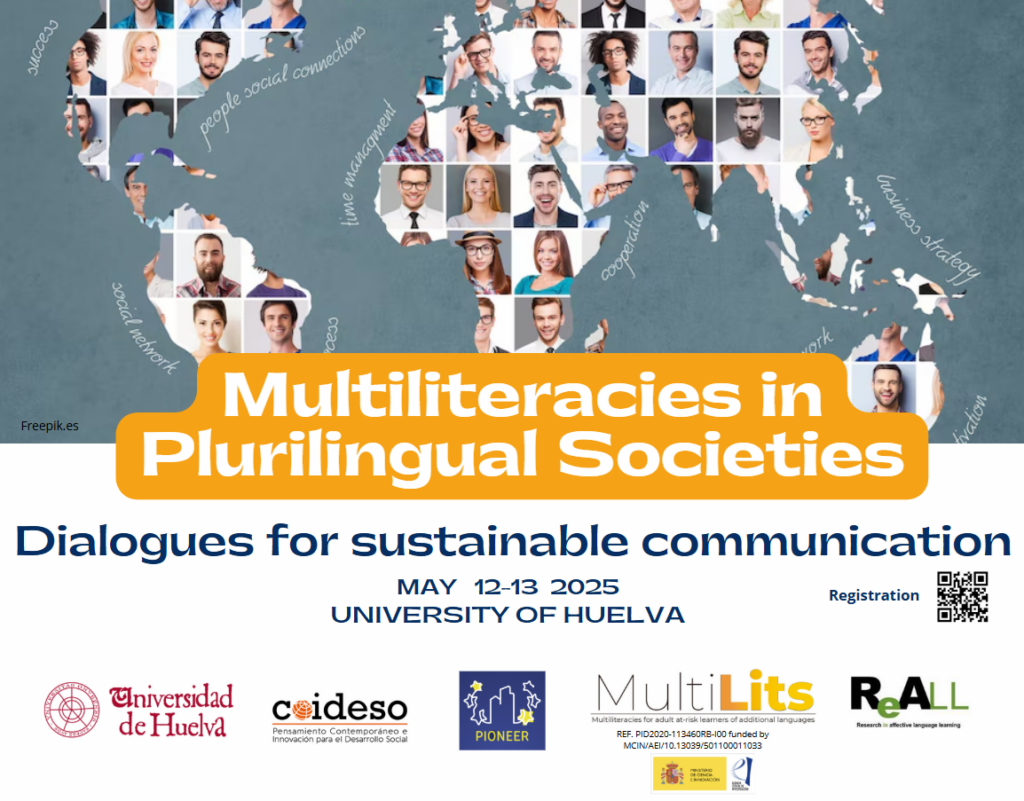Tags
🎉 We are excited to announce the keynote lecture for the upcoming symposium, “Multiliteracies in Plurilingual Societies. Dialogues for Sustainable Communication,” taking place at the University of Huelva on May 12-13, 2025. 📅
📢 Call for participation open till April 10, 2025. 📝 https://forms.gle/HKfU8TTS51FbNGUGA
Esteemed speakers Susan Holloway from the University of Windsor and Patricia Gouthro from Mount St. Vincent University in Canada will present their insights on “The Promise of Multiliteracies: Additional Language Learning for Adults in Plurilingual Societies.” Holloway and Gouthro’s recent research in Canada, showcased on The Multiliteracies Project website, offers valuable insights for researchers, policymakers, and practitioners worldwide, suggesting compassionate and holistic approaches to additional language learning.


This keynote will explore the evolving field of multiliteracies, focusing on linguistic diversity in additional language learning and its role in adult education.
The concept of multiliteracies, introduced by the New London Group in 1996, emphasized cultural diversity. Recently, the focus has shifted to the interplay between culture and additional language learning. Plurilingualism highlights the interconnectedness of learners’ cultural identities and their languages, emphasizing the importance of cultural identity in successful language acquisition. Research in sociocultural approaches to additional language learning has shown that social, political, and cultural contexts are intertwined with traditional second language acquisition (SLA) theory. Multiliteracies have significantly contributed to understanding how multimodality and grounding learners in their primary language and culture can enhance language fluency.
Recently, multiliteracies have gained prominence in adult education and lifelong learning. New Literacy Studies (NLS) and multiliteracies both recognize that learning occurs in social spaces shaped by power relations. Adult education, influenced by theorists like Paulo Freire, advocates for critical perspectives on emancipatory education. Contemporary researchers are exploring the impact of mass migration and globalization on additional language learning and societal responses to newcomers. Multiliteracies are now seen as enriching adult language learning by promoting active citizenship and building plurilingual societies.
In our symposium “Multiliteracies in Plurilingual Societies. Dialogues for Sustainable Communication”, literacy in an additional language is considered a liberating force, enabling people to become democratic and active citizens in the affairs that affect their well-being in plurilingual societies and sustainable cities.

